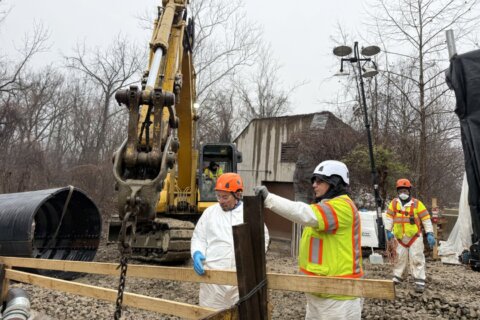WASHINGTON — Montgomery County, Maryland, isn’t known for progressive alcohol laws, but the county council is acknowledging that its burgeoning craft alcohol industry isn’t competing with its neighbors in Northern Virginia.
A zoning amendment backed by several members of the council is hoping to level the playing field by loosening the rules that surround wineries and other craft alcohol producers along the county’s rural Agriculture Reserve.
In a memo put out by Council President Hans Reimer and co-signed by Councilman Craig Rice, legislators acknowledged that neighboring Loudoun County, Virginia, draws far more regional tourism dollars, as they have more than 70 breweries and wineries just a short drive from the D.C. area.
Rice represents most of the up-county land that makes up the Agriculture Reserve.
Rice and Reimer argue in the memo that the only advantage helping Loudoun County are the lack of regulatory barriers that promote industry growth.
The goal of the new amendment is to make sure these types of farms can host events and activities considered “standard business practice for a winery, brewery, cidery, or distillery.”
The zoning amendment would allow the wineries and breweries operating on Montgomery County farms to expand the number of ticketed events they host and open tasting rooms on sit to draw more regional tourists.
Both Reimer and Rice believe the standards and regulations currently in place are sometimes “ambiguous” and “quite restrictive overall.”
“We can have a terrific winery industry in Montgomery County, if we open the doors to it and champion it,” said Reimer at a recent council meeting.
Noting that some farmers could be facing more uncertainty due to trade wars and talk about tariffs, Rice added, “It certainly is going to be even more important for us to provide as much flexibility as possible so that they can continue to grow on their land.
“It’s incredibly important for us to continue to make sure that we’re providing opportunities for our farmers to diversify how they’re going to continue to have [agriculture] operations,” said Rice.
A public hearing is scheduled for May 15, but the amendment is already being sponsored by a majority of the council, making it likely to pass.








